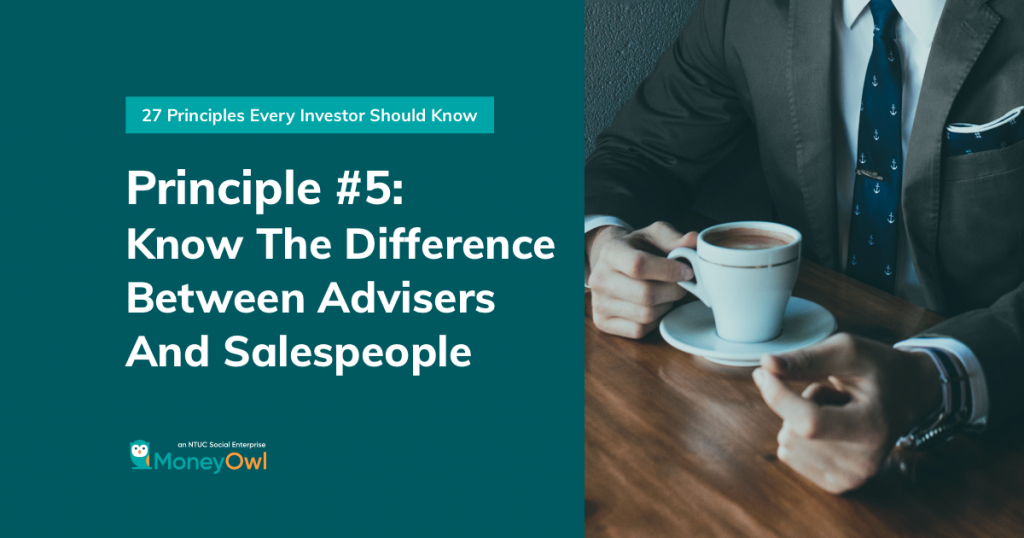Note: It was announced in November 2023 that MoneyOwl will be acquired by Temasek Trust to serve communities under a re-purposed model, and will move away from direct sale of financial products. The article is retained with original information relevant as at the date of the article only, and any mention of products or promotions is retained for reference purposes only.
______________
Here are three ways you can learn to tell the difference between a true adviser and a salesperson.
You’re now convinced that you need to work with a financial adviser, but whom should you work with?
Finding an adviser you trust can be tricky. In Singapore, many consumers think that financial advisers are salespeople who are mainly interested in selling products. This is because the commission and incentive-based compensation structure dominant among financial intermediaries creates a potential conflict of interest, which may cause clients to worry whether advisers would prioritise sales targets over their needs. In addition, with almost everyone calling themselves a “professional financial adviser”, even though the level of competency and service offered to clients can vastly differ, how can you tell the difference?
It’s probably a no-brainer then, if given a choice, you would want to find an adviser who prioritises your needs over a quick sale, is competent across all fields of financial planning to offer you holistic advice, and coaches you towards achieving your goals.
If your adviser fits the bill, good for you! But if not, here are three ways you can learn to tell the difference between a true adviser and a salesperson.
1. Is your adviser competent?
Just as how you should consult a doctor to prescribe the right medicine to you and not a pharmaceutical salesperson, you should also find someone competent and qualified to plan for your financial future. Credentials which are highly sought after in financial planning are those under the Certified Financial Planner® programme, such as “Associate Wealth Planner (AWPCM)” and CFP® itself.
It takes only a few licensing exams to be legally allowed to dispense financial advice, but a lot more competence and mastery of the subject matter to achieve these accreditations. If you are looking for a qualified adviser and not just a salesman in a smart suit, a good way to start is to select from this pool.
2. Does your adviser’s compensation align with your interests?
Advisers who are fully salaried as opposed to having a commission-based compensation structure allows them to provide conflict-free advice and unbiased recommendations. This is not to say that commission-based advisers are all biased, but taking the commission out from the picture, it removes potential conflict as a concern and ensures that the adviser’s interests are fully aligned with yours.
3. Does your adviser help you reach your goals?
While a salesperson focuses on products, an adviser focuses on coming up with a concrete plan to drive towards your goals.
While a salesperson is transactional and event-driven and attempts to gain just enough information to solve one issue, an adviser uses a consultative process to gain a deeper understanding of your goals, desires and fears, and offer customised solutions to fit your unique situation.
As a financial adviser and fund management company licensed by the MAS, we hold ourselves to the highest of standards to put your interests first, and all our advisors are certified or undergoing training for specific credentials. Our key leaders have a wealth of experience in comprehensive financial planning and fund management so you can be assured of receiving the most competent advice. If you’d like us to review your financial situation with you today, feel free to reach us at (65) 6329 9188 or enquiries@dev.moneyowl.com.sg.
This series is adapted from the book, 27 Principles Every Investor Should Know, written by Steven J. Atkinson. Read the rest of the principles:




